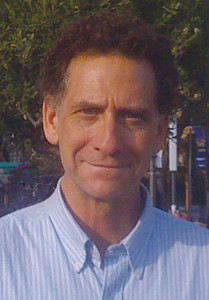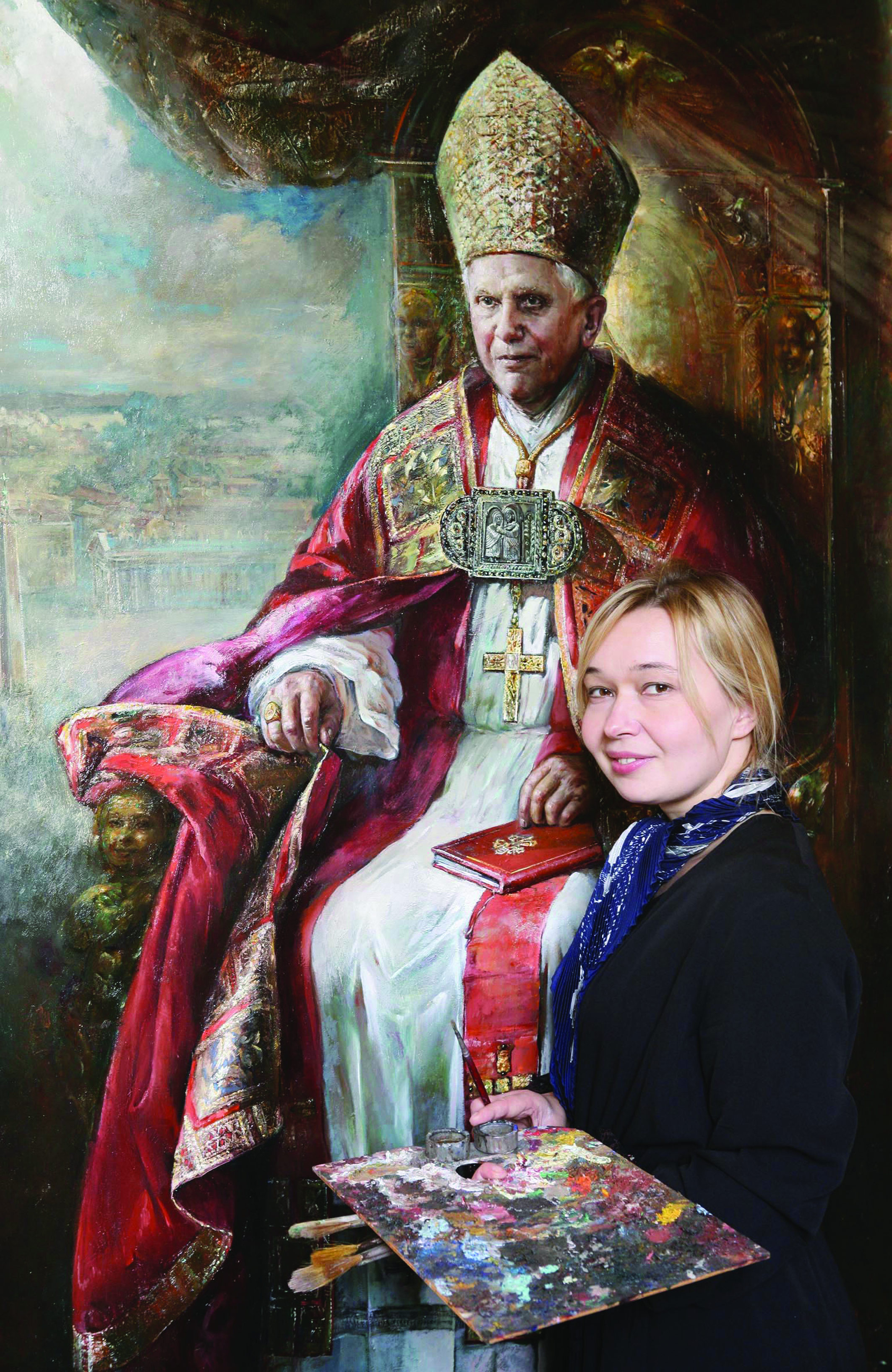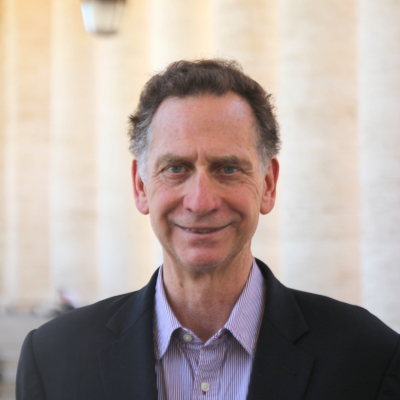
Robert Moynihan
The great predicament in our modern age is less a belief that we moderns are “like gods” than it is a conviction that we are like animals, ruled by instinct — that we have no free will. But Christian belief is that man is in fact free…
The early Church universally held that every man and woman had free will and could choose to do good or evil. This meant that each man and woman is responsible before God for his or her actions, whether for good or for evil. One of the great challenges of our age is that wide swaths of our population have come to believe that man does not have free will, and so men are not responsible for their choices. Believing that we are moved by hormones, or childhood neuroses which we are unable to understand or control, we have come to believe that no one can be held accountable for any of his or her actions. But in the first three centuries, from the Apostles to St. Augustine (354-430 A.D.), the early Church Fathers argued unanimously that humans are fully responsible for their choices. And the ultimate choice? Whether to respond to or reject the Gospel, the “Good News”…
Here are a few representative quotes from these early Christian writers to give a sense of our earliest tradition regarding free will.
St. Ignatius of Antioch (AD 30-107) — “Seeing, then, all things have an end, and there is set before us life upon our observance [of God’s precepts], but death as the result of disobedience, and every one, according to the choice he makes, shall go to his own place, let us flee from death, and make choice of life. For I remark, that two different characters are found among men — the one true coin, the other spurious. The truly devout man is the right kind of coin, stamped by God Himself. The ungodly man, again, is false coin, unlawful, spurious, counterfeit, wrought not by God, but by the devil. I do not mean to say that there are two different human natures, but that there is one humanity, sometimes belonging to God, and sometimes to the devil. If any one is truly religious, he is a man of God; but if he is irreligious, he is a man of the devil, made such, not by nature, but by his own choice. The unbelieving bear the image of the prince of wickedness. The believing possess the image of their Prince, God the Father, and Jesus Christ, through whom, if we are not in readiness to die for the truth into His passion, His life is not in us.” (St. Ignatius, Epistle to the Magnesians, V)
St. Barnabas (AD 100) — “The Lord will judge the world without respect of persons. Each will receive as he has done: if he is righteous, his righteousness will precede him; if he is wicked, the reward of wickedness is before him. Take heed, lest resting at our ease, as those who are the called [of God], we should fall asleep in our sins, and the wicked prince, acquiring power over us, should thrust us away from the kingdom of the Lord. And all the more attend to this, my brethren, when ye reflect and behold, that after so great signs and wonders were wrought in Israel, they were thus [at length] abandoned. Let us beware lest we be found [fulfilling that saying], as it is written, ‘Many are called, but few are chosen.’” (Epistle of Barnabas, IV)
St. Justin Martyr (AD 110-165) — “But lest some suppose, from what has been said by us, that we say that whatever happens, happens by a fatal necessity, because it is foretold as known beforehand, this too we explain. We have learned from the prophets, and we hold it to be true, that punishments, and chastisements, and good rewards, are rendered according to the merit of each man’s actions. Since if it be not so, but all things happen by fate, neither is anything at all in our own power.
“For if it be fated that this man, e.g., be good, and this other evil, neither is the former meritorious nor the latter to be blamed. And again, unless the human race have the power of avoiding evil and choosing good by free choice, they are not accountable for their actions, of whatever kind they be. But that it is by free choice they both walk uprightly and stumble, we thus demonstrate.
“We see the same man making a transition to opposite things. Now, if it had been fated that he were to be either good or bad, he could never have been capable of both the opposites, nor of so many transitions. But not even would some be good and others bad, since we thus make fate the cause of evil, and exhibit her as acting in opposition to herself; or that which has been already stated would seem to be true, that neither virtue nor vice is anything, but that things are only reckoned good or evil by opinion; which, as the true word shows, is the greatest impiety and wickedness. But this we assert is inevitable fate, that they who choose the good have worthy rewards, and they who choose the opposite have their merited awards. For not like other things, as trees and quadrupeds, which cannot act by choice, did God make man: for neither would he be worthy of reward or praise did he not of himself choose the good, but were created for this end; nor, if he were evil, would he be worthy of punishment, not being evil of himself, but being able to be nothing else than what he was made.” (St. Justin Martyr, First Apology, XLIII)
“Since God in the beginning made the race of angels and men with free-will, they will justly suffer in eternal fire the punishment of whatever sins they have committed. And this is the nature of all that is made, to be capable of vice and virtue. For neither would any of them be praiseworthy unless there were power to turn to both (virtue and vice). And this also is shown by those men everywhere who have made laws and philosophized according to right reason, by their prescribing to do some things and refrain from others… For if they say that human actions come to pass by fate, they will maintain either that God is nothing else than the things which are ever turning, and altering, and dissolving into the same things, and will appear to have had a comprehension only of things that are destructible, and to have looked on God Himself as emerging both in part and in whole in every wickedness; or that neither vice or virtue is anything; which is contrary to every sound idea, reason, and sense.” (St. Justin Martyr, Second Apology, VII)
St. Irenaeus (AD 120-202) — “This expression [of our Lord], ‘How often would I have gathered thy children together, and thou wouldest not,’ set forth the ancient law of human liberty, because God made man a free [agent] from the beginning, possessing his own power, even as he does his own soul, to obey the behests (ad utendum sententia) of God voluntarily, and not by compulsion of God. For there is no coercion with God, but a good will [towards us] is present with Him continually. And therefore does He give good counsel to all.”
When Dante dedicated the Paradiso to Can Grande della Scala, he said that the literal meaning of the Divine Comedy is the way in which human beings by their own free acts earn eternal punishment or reward. That is the Catholic vision of human action. Let us then live with the freedom with which we were made.





Facebook Comments